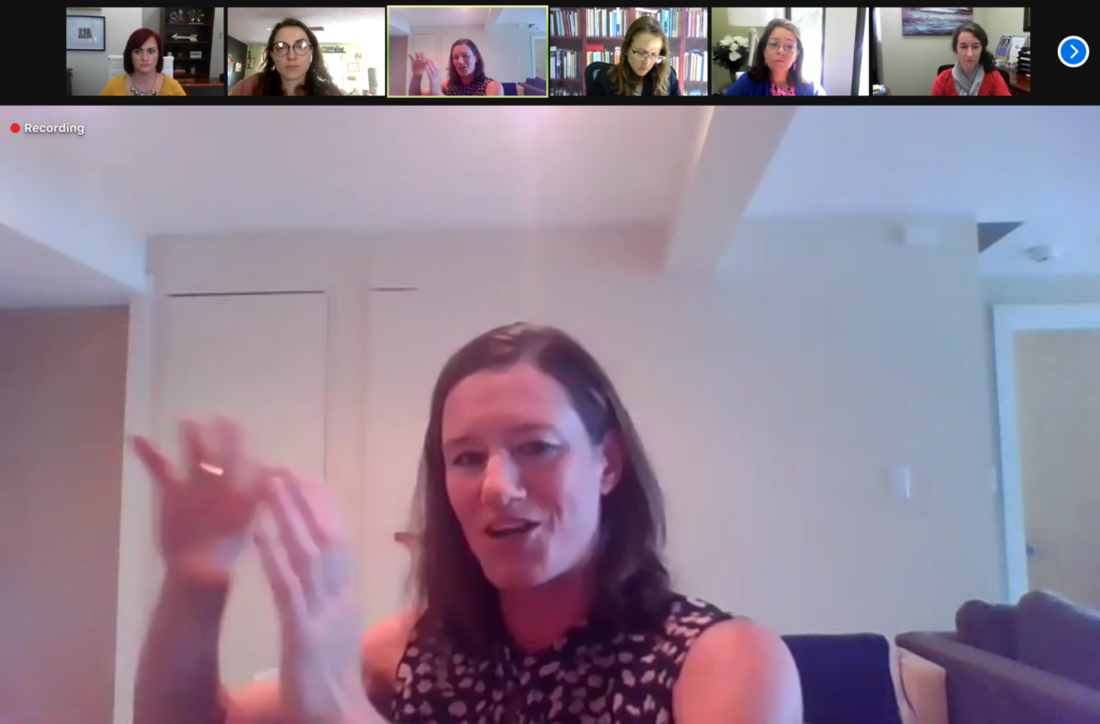FSU Law Hosts “Remembering Justice Ruth Bader Ginsburg” Virtual Event

Professor Courtney Cahill during the “Remembering Justice Ruth Bader Ginsburg:
The Legacy Lives On” virtual session
On Wednesday, September 30, the FSU Law Office of Student Advancement, along with student groups If/When/How and Women’s Law Symposium, hosted “Remembering Justice Ruth Bader Ginsburg: The Legacy Lives On” via Zoom. More than 100 people attended the event. Professors Courtney Cahill and Mary Ziegler discussed the impact of Justice Ginsburg’s work in the area of sex equality and what she meant to them personally, before opening the floor to comments and questions. Cahill, the Donald Hinkle professor, writes at the intersection of Constitutional law and sexuality. Ziegler, the Stearns Weaver Miller professor, specializes in the legal history of reproduction, the family, sexuality and the Constitution. Since Justice Ginsburg’s death on September 18, Ziegler has authored op-eds for CNN, The Atlantic, The Washington Post and The Boston Globe, among others. She was also a guest on NPR’s “Consider This” podcast, “PBS NewsHour” and “Good Day New York.”
Cahill started her remarks with what she called Justice Ginsburg’s huge, but often overlooked contribution to equality in America, an idea that relates to exceptionality.
“As a lawyer at the ACLU Women’s Rights Project, which she co-founded, Ginsburg incrementally wove this idea of exceptionality into sex equality law by insisting in case after case after case that law does and must protect the exceptional person—the unusual man or unique woman,” said Cahill. “I don’t think this seems radical now, in large part because Justice Ginsburg mainstreamed it, but it was very radical in the 1970s when she was bringing these cases given that the court didn’t strike down a sex discrimination statute under the Equal Protection Clause until 1971, which was more than 100 years after the Equal Protection Clause was passed and about a half a century after the 19th Amendment was passed.”
Cahill went on to say, “If as an advocate Justice Ginsburg introduced this idea that sex equality law does and must respect and protect exceptional individuals, as a justice she really cemented it into an essential feature of anti-discrimination law.”
Ziegler said that one of the things most striking to her about Justice Ginsburg’s legacy was that she herself was an outsider and that her jurisprudence was informed by her personal experiences. “Throughout her career she was told no because of her gender or because of religion and that, I think, informed everything she did thereafter,” said Ziegler. “The second most striking thing about her legacy was that Ginsburg understood that discrimination was harmful to outsiders and insiders alike.” A recording of the event is available online.
Published on October 2, 2020

